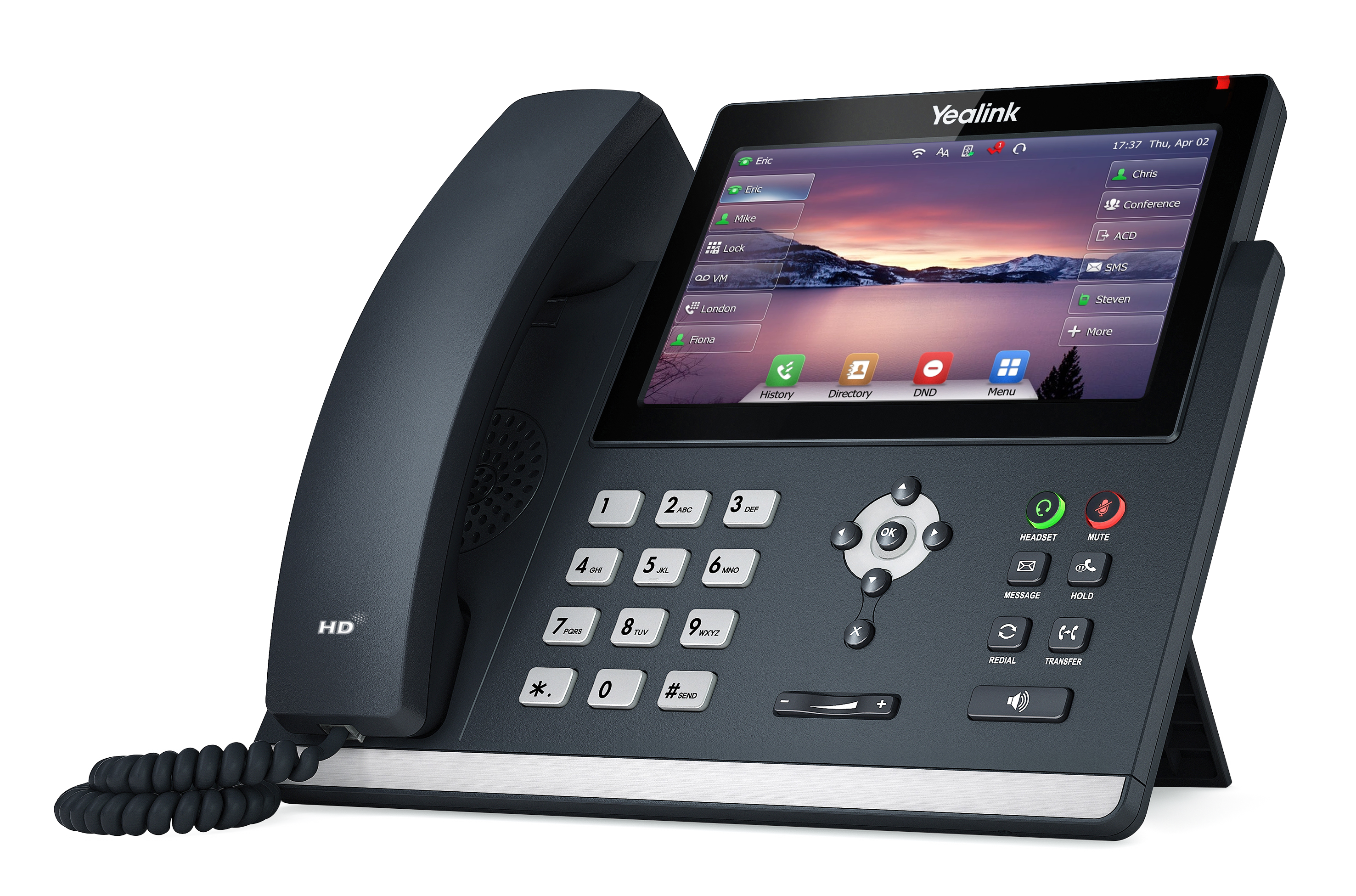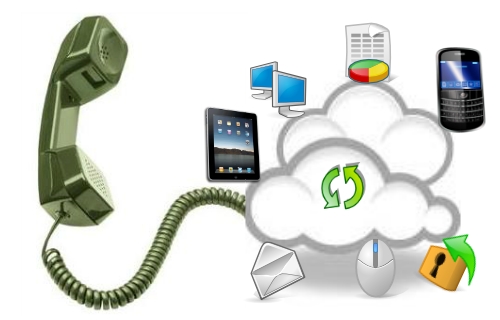The Advancement of Phone Solutions: From Landlines to VoIP
The globe of phone systems has actually gone through an exceptional makeover over the years. From the standard landline systems that controlled families and companies for years, we have actually now transitioned to the period of Voice over Web Procedure (VoIP) This evolution has revolutionized the means we interact, offering a much more affordable and versatile service. In this short article, we will certainly check out the trip of phone systems, beginning with the early telephone modern technology to the intro of digital phone systems, and finally, the introduction of VoIP. We will certainly additionally discuss the benefits of utilizing VoIP innovation, such as enhanced scalability and mobility. As we explore the future of phone systems, it becomes apparent that VoIP is right here to stay, shaping the means we connect and connect in the electronic age.
Early Telephone Technology
Very early telephone innovation's development played an important function in reinventing communication approaches. At the forefront of this technical advancement was Alexander Graham Bell, that is attributed with designing the telephone in 1876. Bell's innovation marked a considerable landmark in the background of communication, as it enabled real-time, long-distance discussions to take place.
The very early telephone systems depended on landlines, which were physical connections in between 2 telephones with a network of cables. These landlines allowed voice signals to be transferred over lengthy ranges, bringing individuals better with each other and promoting instantaneous communication. While the initial telephone systems were limited in extent and accessibility, they laid the structure for the advancement of advanced interaction modern technologies in the future.
Among the key developments in early telephone technology was the intro of the switchboard system. The switchboard allowed numerous telephones to be linked to a main exchange, allowing users to make phone call to different areas. This development considerably increased the reach and availability of telephone communication, as it eliminated the requirement for a direct physical link in between two telephones.
Shift to Digital Phone Equipments
The improvement of telephone technology resulted in the change from landlines to electronic phone systems, marking a considerable shift in the way interaction was conducted. Digital phone systems, also referred to as Voice over Internet Method (VoIP) systems, use web connections to transmit voice signals rather than standard copper wires. This change to electronic phone systems has actually brought around many benefits for people and companies alike.
Among the crucial benefits of digital phone systems is cost financial savings. VoIP systems remove the need for multiple phone lines, as all telephone calls are transferred over the net. This leads to reduced framework costs and lower monthly costs. Additionally, global phone calls can be made at considerably reduced rates compared to typical phone systems.
Another benefit of digital phone systems is enhanced functionality. Digital phone systems can conveniently incorporate with various other company communication devices such as email and immediate messaging, supplying a merged and structured interaction experience.
Intro of Voip Technology
With the introduction of VoIP technology, the landscape of phone systems began to move in the direction of a more cost-efficient and reliable communication solution. VoIP, or Voice over Net Procedure, allows customers to make phone telephone calls online rather of traditional landlines. This innovation transforms voice signals into electronic packages and transfers them over information networks, eliminating the need for specialized phone lines.

One more advantage of VoIP is its flexibility and scalability. With conventional phone systems, adding or getting rid of phone lines can be a troublesome and expensive process. With VoIP, individuals can quickly include or remove lines as required, making it a more scalable service for organizations of all sizes (NEC Authorized Dealer Houston TX).
In addition, VoIP technology gives a vast array of features that boost communication efficiency. These attributes consist of voicemail to email transcription, telephone call forwarding, meeting calls, and auto-attendant systems. These attributes not just enhance productivity however also make communication extra available and practical.
Advantages of Utilizing Voip
How does VoIP innovation offer substantial advantages over conventional phone systems? VoIP, or Voice over Internet Procedure, has actually changed the method we connect by giving many advantages that conventional phone systems just can not match.
Firstly, among the key benefits of using VoIP is price savings. Unlike typical phone systems that count on physical phone lines, VoIP makes use of a web link to send voice information. This removes the requirement for expensive long-distance fees and enables inexpensive or totally free international telephone calls. In addition, VoIP systems commonly supply competitive pricing strategies that include unrestricted domestic calling, further lowering interaction expenditures.
Second of all, VoIP technology supplies boosted flexibility and scalability. Standard phone systems are limited by the variety of physical phone lines, making it tough and expensive to add or remove lines as required. In contrast, VoIP enables for very easy scalability, enabling organizations to add lines or extensions without the need for added hardware.
Another advantage of VoIP is its rich functions and integrations. VoIP systems This Site typically come with a series of innovative attributes such as voicemail, call forwarding, telephone call recording, and automated assistants. These features enhance productivity and client service. VoIP can effortlessly incorporate with various other interaction tools like email, instant messaging, and video conferencing, offering a linked interaction experience.
Last but not least, VoIP deals increased flexibility and access. With VoIP, individuals can make and get telephone calls from anywhere with an internet link, permitting remote job and organization continuity. This degree of a knockout post ease of access is specifically beneficial for organizations with remote employees or several office areas.
Future of Phone Solutions
As innovation remains to development, the future of phone systems holds the pledge of also higher advancement and smooth communication. With the rapid development of expert system (AI), digital truth (VIRTUAL REALITY), and the Internet of Points (IoT), the opportunities for phone systems are broadening past traditional voice phone calls.
One secret aspect of the future of phone systems is the assimilation of AI. In the future, these aides will likely play a larger function in handling our phone calls, scheduling meetings, and also carrying out conversations on our behalf.
Another area of growth is the integration of phone systems with other interaction channels. With the rise of messaging apps and social networks platforms, individuals are significantly shifting in the direction of text-based interaction. In the future, phone systems will effortlessly integrate voice, video clip, and text-based interaction networks, enabling individuals to switch between them easily.

Conclusion
In conclusion, the evolution of phone systems from landlines to VoIP technology has reinvented interaction. Very early telephone modern technology laid the foundation for digital phone systems, which paved the way for the introduction of VoIP.
In this post, we will certainly check out the journey of phone systems, beginning from the early telephone modern technology to the introduction of digital phone systems, and ultimately, the advent of VoIP. Digital phone systems, likewise understood as Voice over Net Procedure (VoIP) systems, make use of web connections to transfer voice signals instead of typical copper cords. With standard phone systems, including or eliminating phone lines can be a expensive and cumbersome process. Unlike typical phone systems that rely on physical phone lines, VoIP uses a net connection to transmit voice information. Conventional phone systems are limited by the number of physical phone lines, making it difficult and pricey to include or get rid of lines as needed.